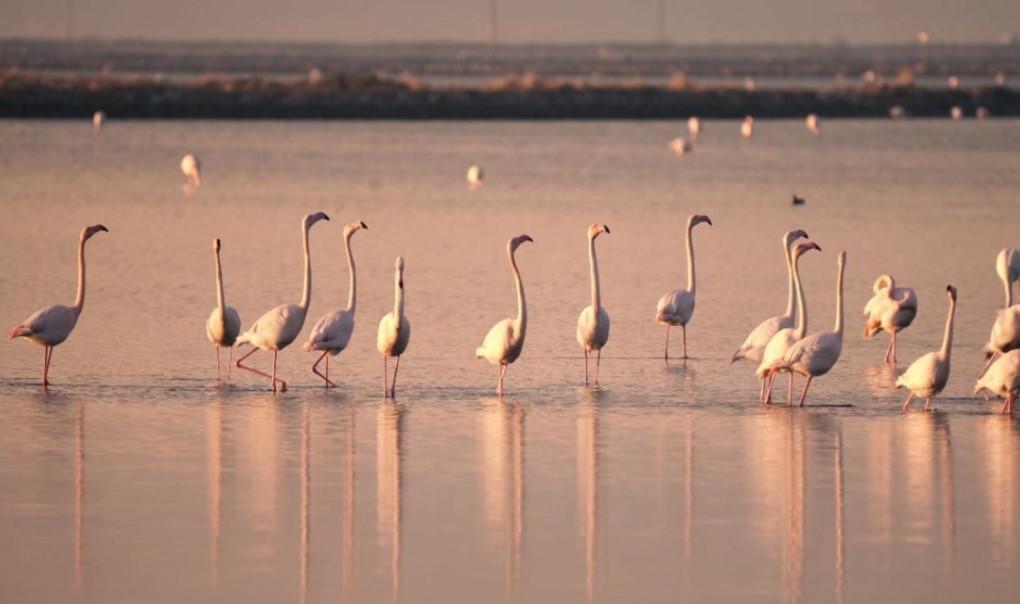
Pollution and poaching have decreased the nests and breeding areas of flamingos and crested pelicans at the mouth of the Gediz River in one of the largest deltas of the eastern Mediterranean, research and monitoring studies have revealed.
“We have seen a decrease in the breeding areas of two species due to the construction and pollution in the delta,” said Şafak Arslan, the biodiversity research coordinator of the Nature Association, noting that poaching also prevails in the wetland.
Noting that there has been a great decrease in the numbers since 2017, Arslan informed the number of flamingo nests dropped from 13,500 to around 10,000 in 2022.
“The biggest reason for the decrease in the nests of crested pelicans, especially in the Gediz Delta, is also human pressure. They left and started to breed in different areas,” he added. “We saw in the studies we carried out that the number of couples decreased from 120 to 80 this year.”
The association examined the changes and threats in the ecosystem by watching the birds and prepared a report accordingly, he said, pointing out that restoration and rehabilitation work can be carried out in damaged areas.
Wetlands, like other natural areas, have different biodiversity richness, and the delta ecosystem, where fresh and saltwater mixes, also hosts different habitats, he underlined.
“It is a great risk for the city to move towards the delta for construction purposes,” Arslan said, stressing that the İzmir Metropolitan Municipality and related institutions are taking precautions regarding the issue.
Stating that they completed the research and monitoring studies with the support of the Nature Conservation and National Parks (DKMP) and the municipality, Arslan added that they carried out field and awareness work for a total of 93 days in the delta.
The delta, which has been applied to be included on the UNESCO World Heritage Site list, hosts approximately 300 bird species, according to the studies conducted in 2021.